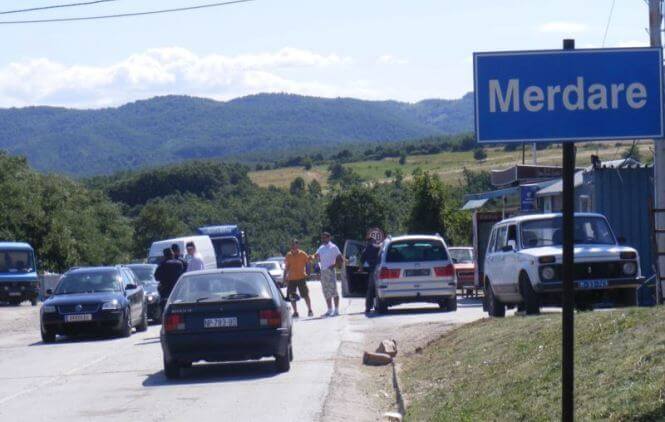The division of Kosovo is without a doubt the longest-running concept for resolving the most difficult of all Balkan issues. Although no one has ever (until recently) put it on the table as an official initiative, the division of all the past decades has hovered above the negotiating tables as a model for exit. Unwanted and unpopular, it was always met with immediate rejection at influential addresses, but it always came back as a question, speculation, analytical model, provocation… Like a forbidden book, read from hand to hand by millions of people.
If it was always a “bogeyman”, why did they always deal with it and why did they always try to disqualify it as – “opening the Pandora’s box” and the initiator of the “domino effect” in the Balkans? Opponents of the division have not been able to find a third “argument” for its rejection in at least two decades, as long as it has been hovering over the Kosovo problem. If division has never been a serious option, why, for example, the famous and long-forgotten Contact Group back in 2005 deal with it, when in its “Guiding Principles for Resolving the Status of Kosovo” it explicitly rejected the possibility of changing Kosovo’s territory as well as its division?
All other solutions that were offered and brought in the meantime, did not lead to a solution to the problem. Neither the declaration of Kosovo’s independence, nor, on the other hand, the return of Kosovo to the constitutional system of Serbia, nor all other inter-solutions, such as the Ahtisaari plan, and even the Brussels agreement…
John Bolton recently said out loud what many dealing with the Kosovo issue already knew well – the division HAS BEEN on the table since 2018 (which is important), but that it was not a Washington concept (which is less important). What is the secret of the vitality of this concept, and therefore the question – why has it been in circulation for so long, despite the constant and persistent rejection?
It is no secret that the division of Kosovo (demarcation, territorial exchange…) is an option that suits Belgrade and that could lead to a long-term compromise with the Albanians. The division was on the table precisely because Belgrade changed its focus on the Kosovo issue and from the traditional negative (we know what we will not) position, with the arrival of Aleksandar Vučić, moved to the track of real politics, looking for a solution that could end the problem (we know what we want). No one could remain indifferent to such a major change in the position of official Serbia. Kosovo Albanians, who have, for the most part, experienced the division of Kosovo as a death sentence for their idealized statehood, were particularly opposed to this, showing the same pre-political psychology that Serbia had until ten years ago. Either the state – or nothing. The exception was Hashim Thaci, who, according to Bolton, discussed the idea, but his negotiating authority seems to have failed irretrievably with the recent publication of the indictment filed against him by the specialized court for KLA crimes.
Removing Thaci as a negotiator is just the latest in a series of efforts to remove the division from the table as a possible option. According to Timothy Less, a British diplomat and researcher, the “killing” of the division was the motive for the introduction of taxes on Serbian goods and the bringing of the radical Albin Kurti as the Prime Minister of Kosovo. In the sponsors of these three actions, and that is without a doubt the European Union, above all Germany and France, we see the strongest opponents of the division of Kosovo. Berlin and Paris are the biggest proponents of the theory that the division will “open Pandora’s box” or “cause a domino effect” in the Balkans, without any further explication. And especially without answering the question – if it suits Serbs and Albanians, why would you prevent it?
Opposition to the solution, which would potentially be accepted by Serbs and Albanians, works directly against the agreement and suggests a long, long delay in the process and, in fact, its new freezing. Opposition to division, and at the same time the absence of any other concept, and that is exactly what the EU is doing through Berlin and Paris, is equal to stopping the dialogue and discouraging all those who want a solution, and that is primarily Serbs and Albanians. At this point, the strategies of the EU and Russia completely coincide, with a small difference that the EU behaves like Serbia used to – it knows what it will not, while in Moscow they know very clearly what they want, and that is preserving Kosovo as a permanently unresolved, conflict and neuralgic issue.
The American turn in that regard was of great importance and hinted at entering the finals. The country that is by far the most influential promoter of Kosovo’s independence, its strongest international protector, had enough authority and courage to accept the concept of division, at least as a topic for discussion, because it rightly concluded that this could be the door to agreement and solution. We have not been able to see such courage and authority from Europeans so far, except when every story about demarcation had to be torpedoed. The new Brussels talks do not indicate that anything will change in such a strategy, and that is why a faster return of Washington to the negotiation process would be more than desirable. If we want a solution.
